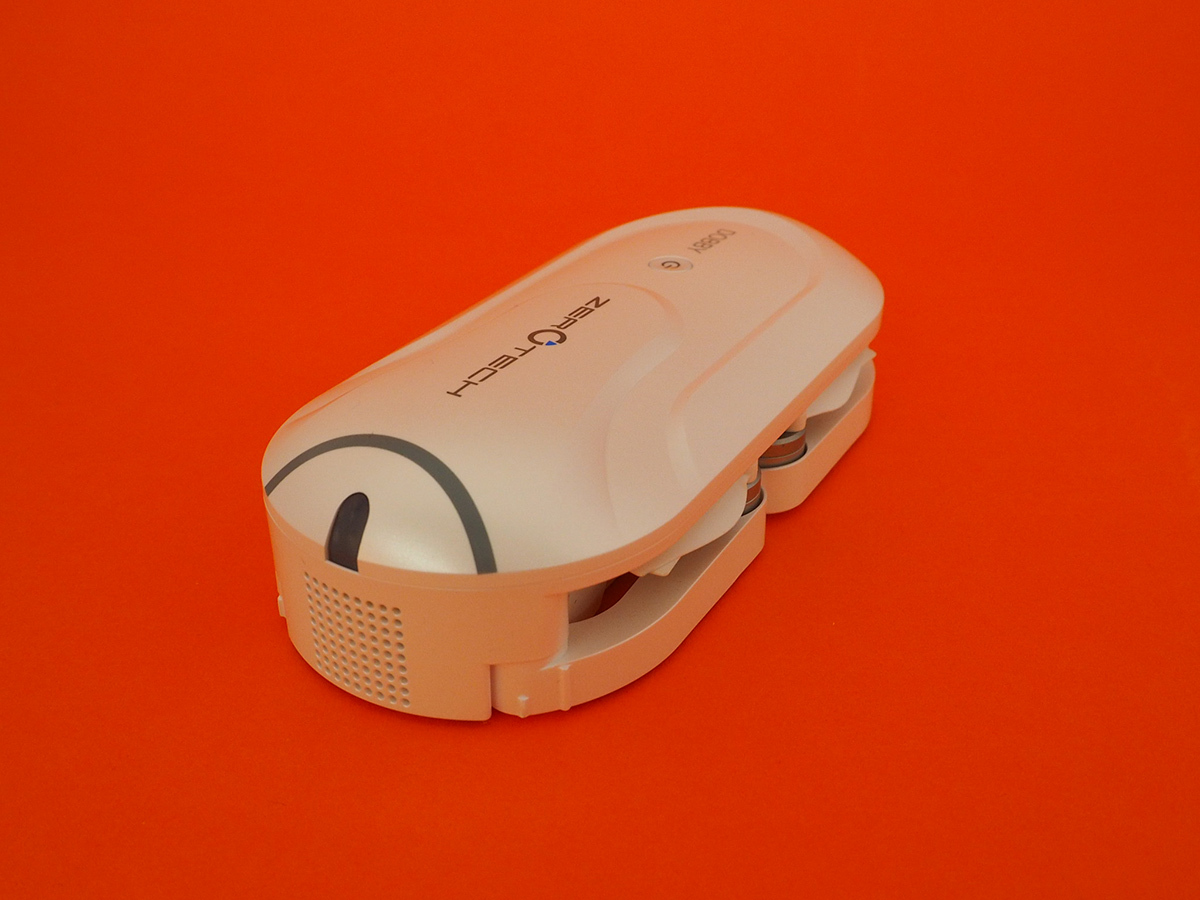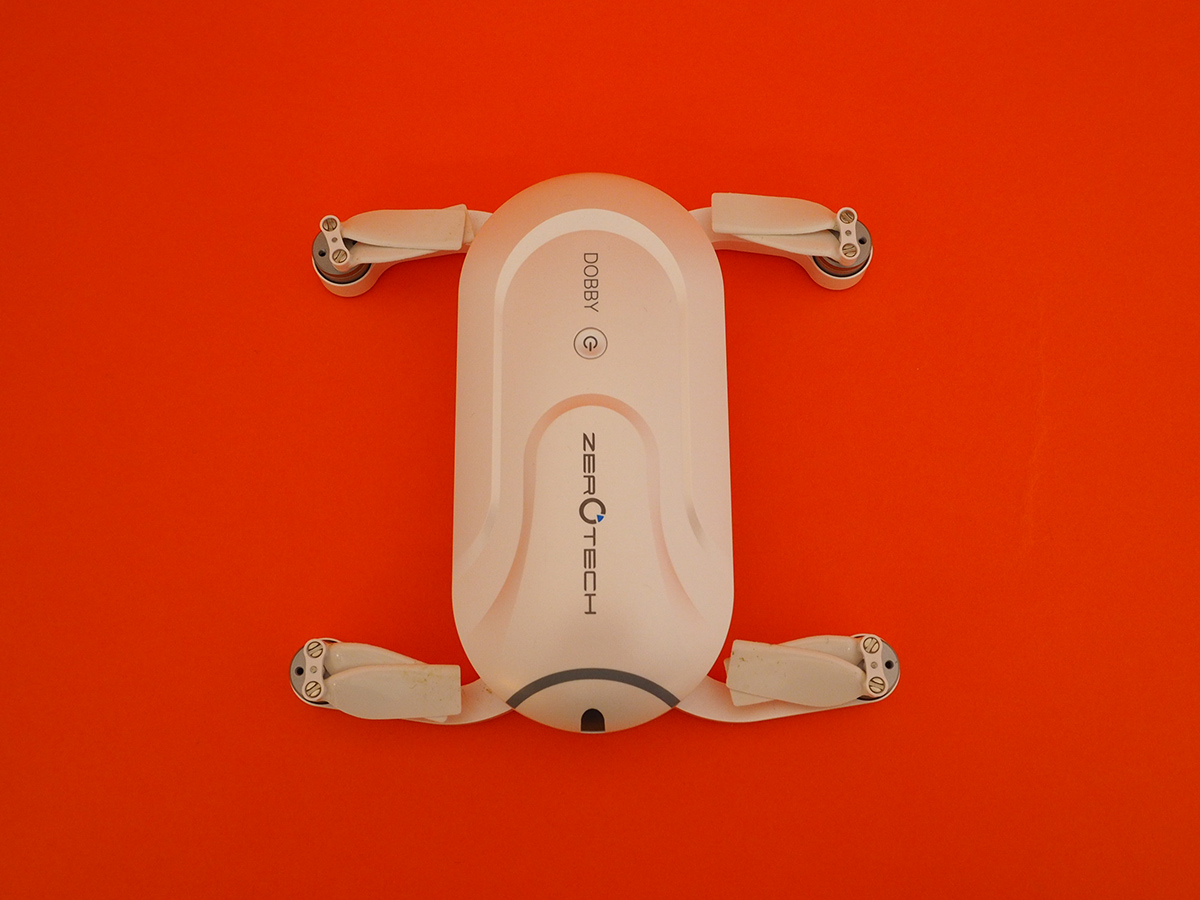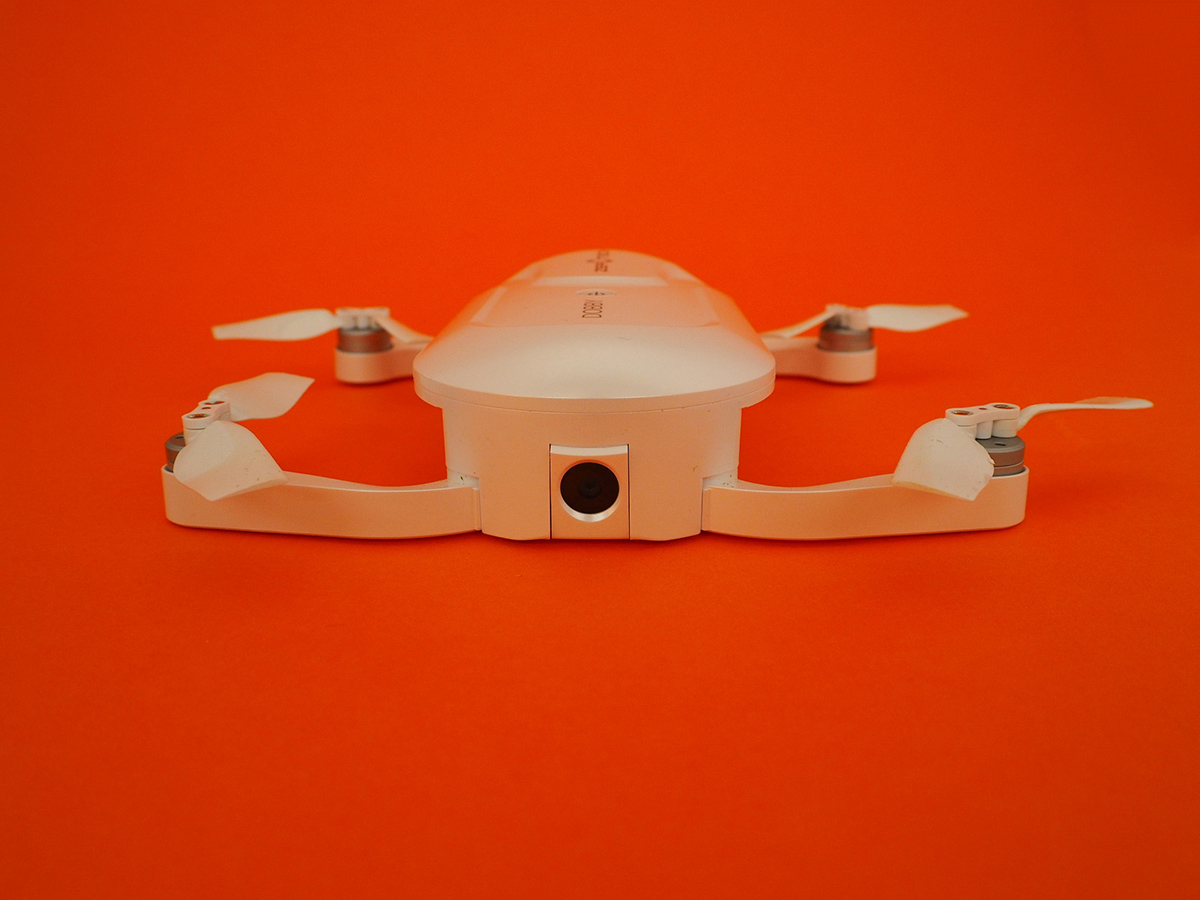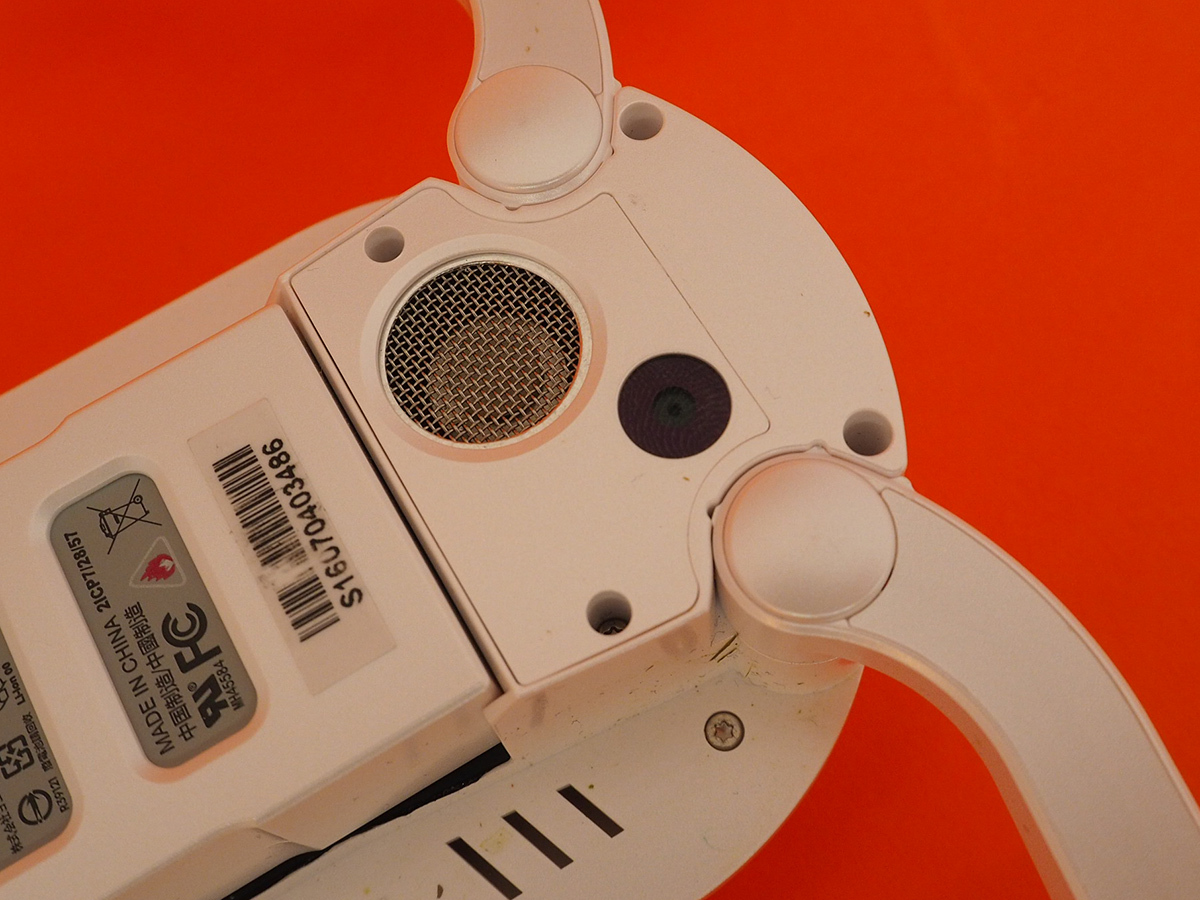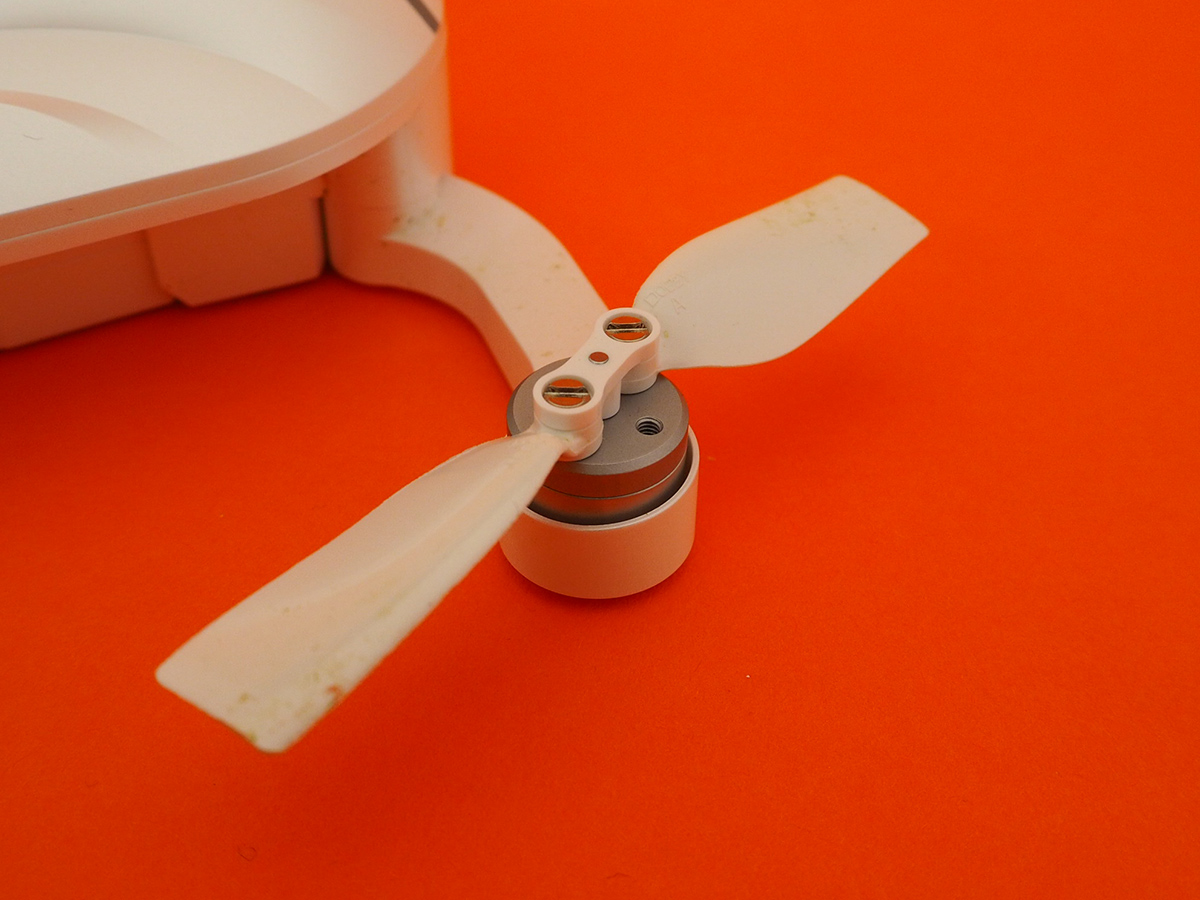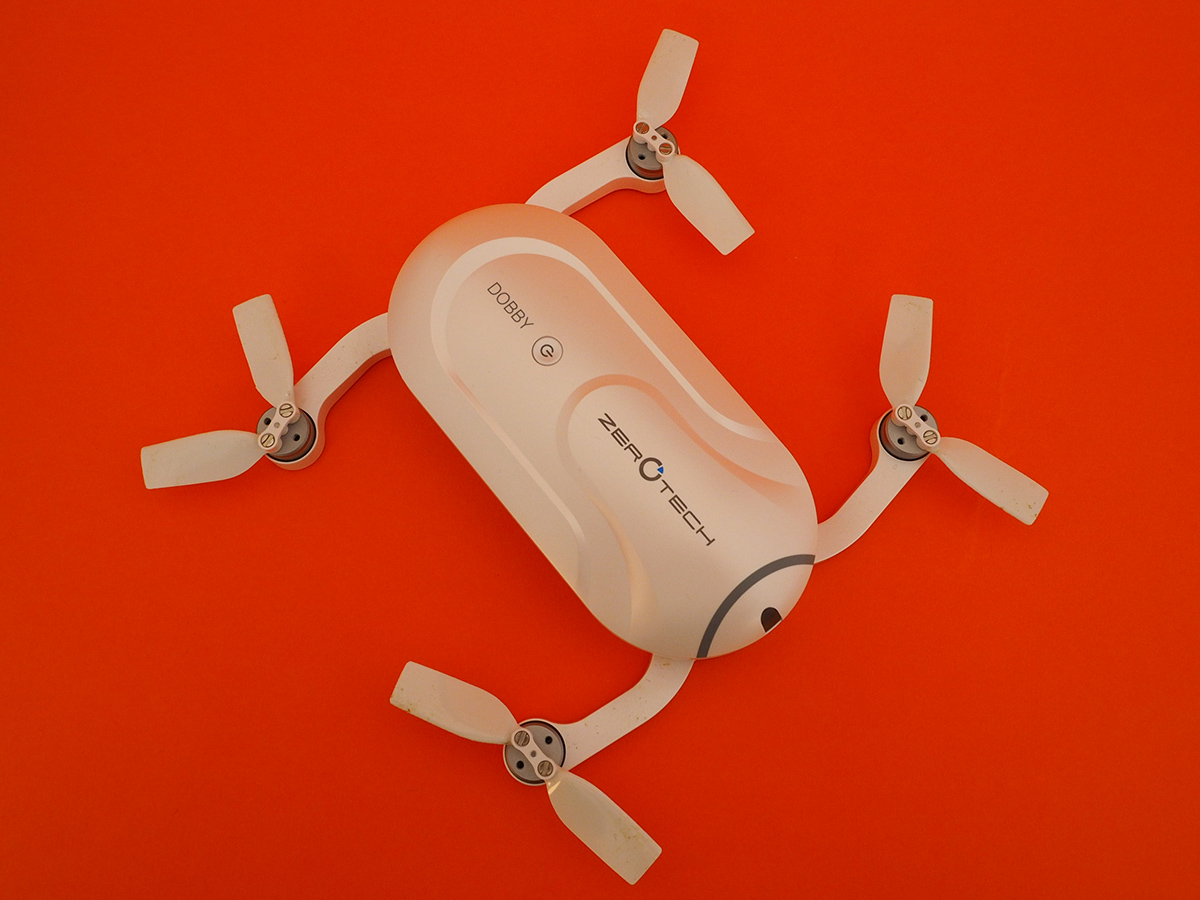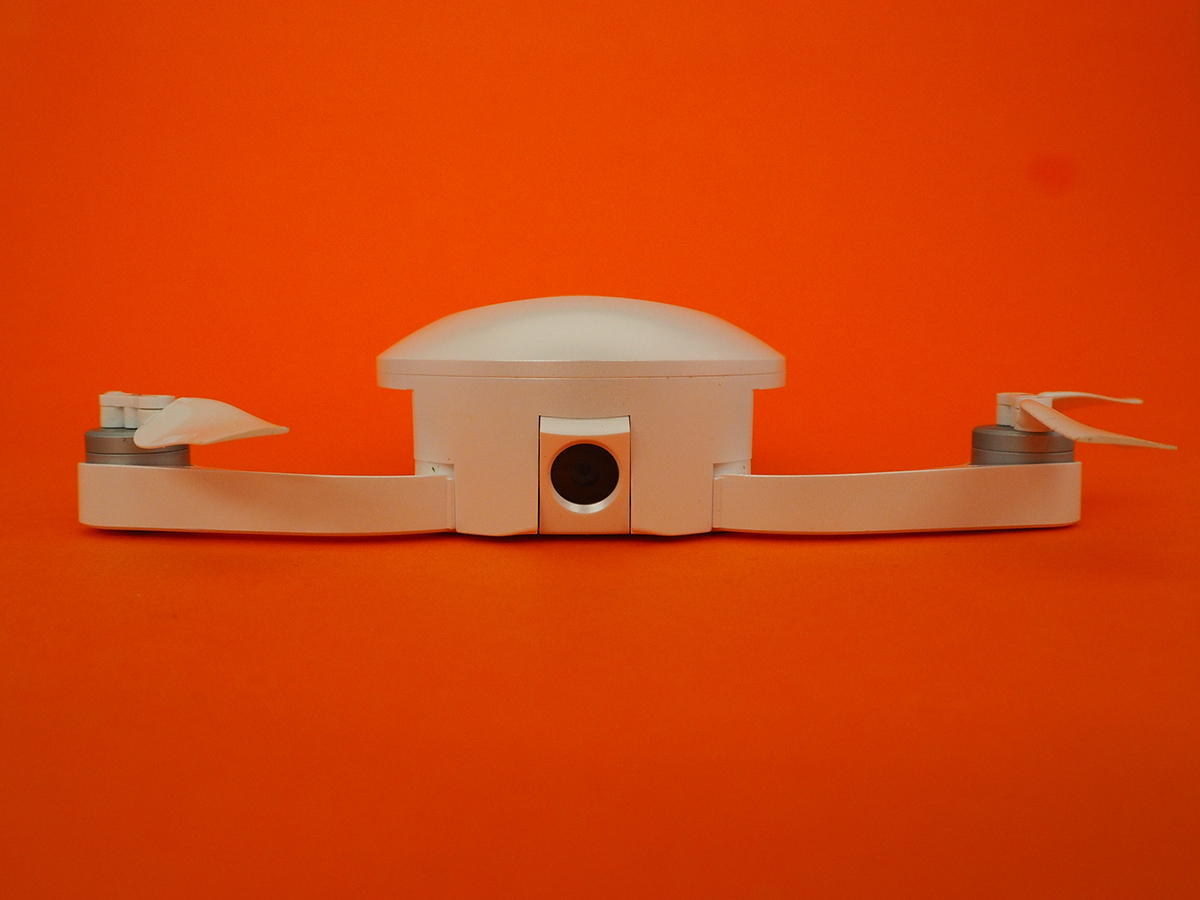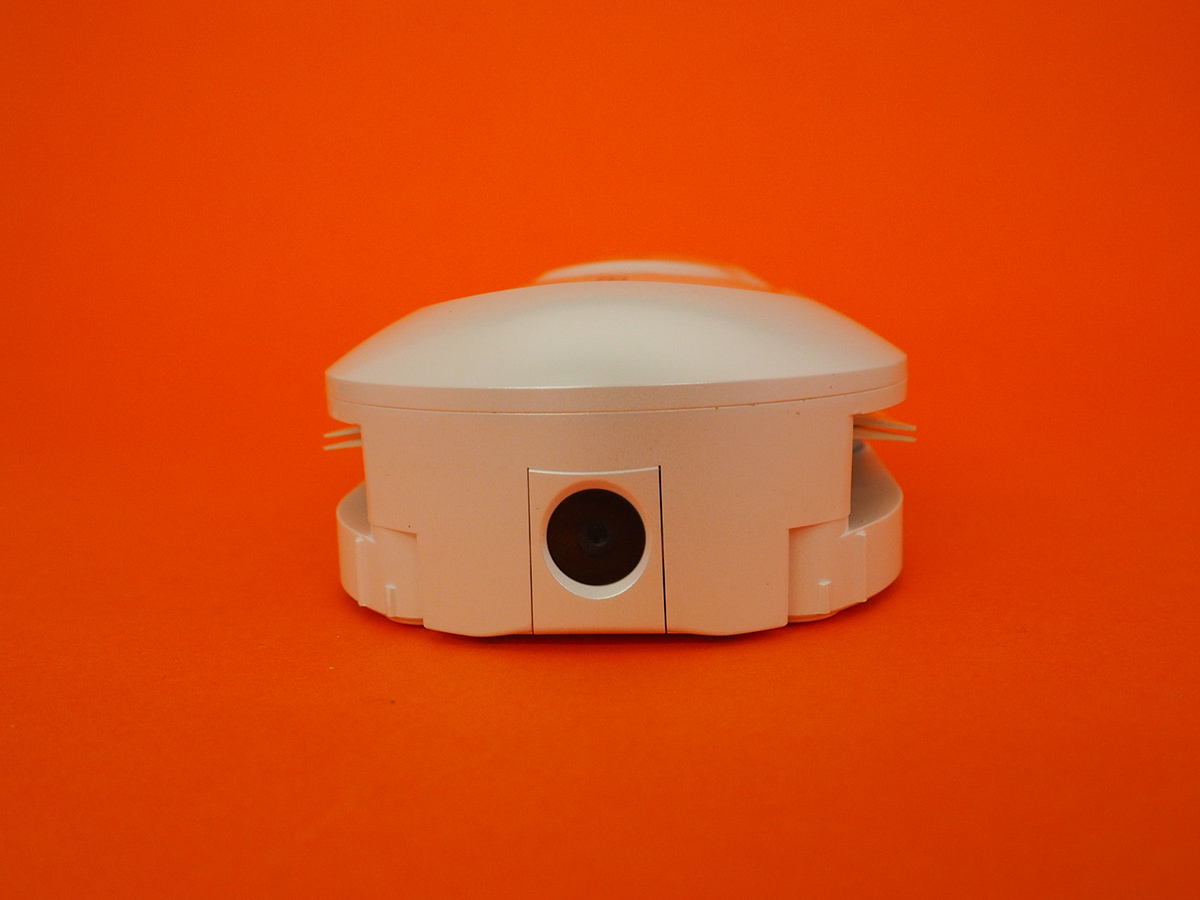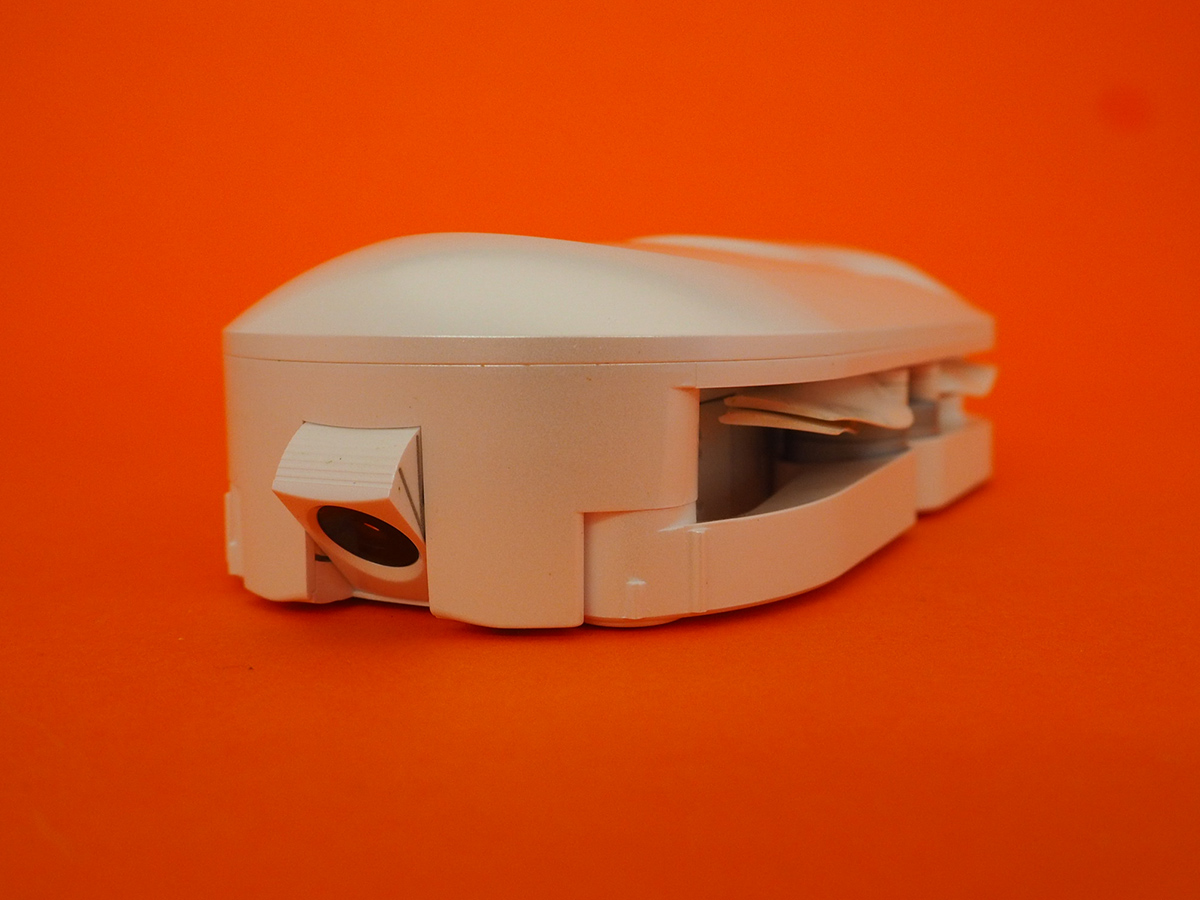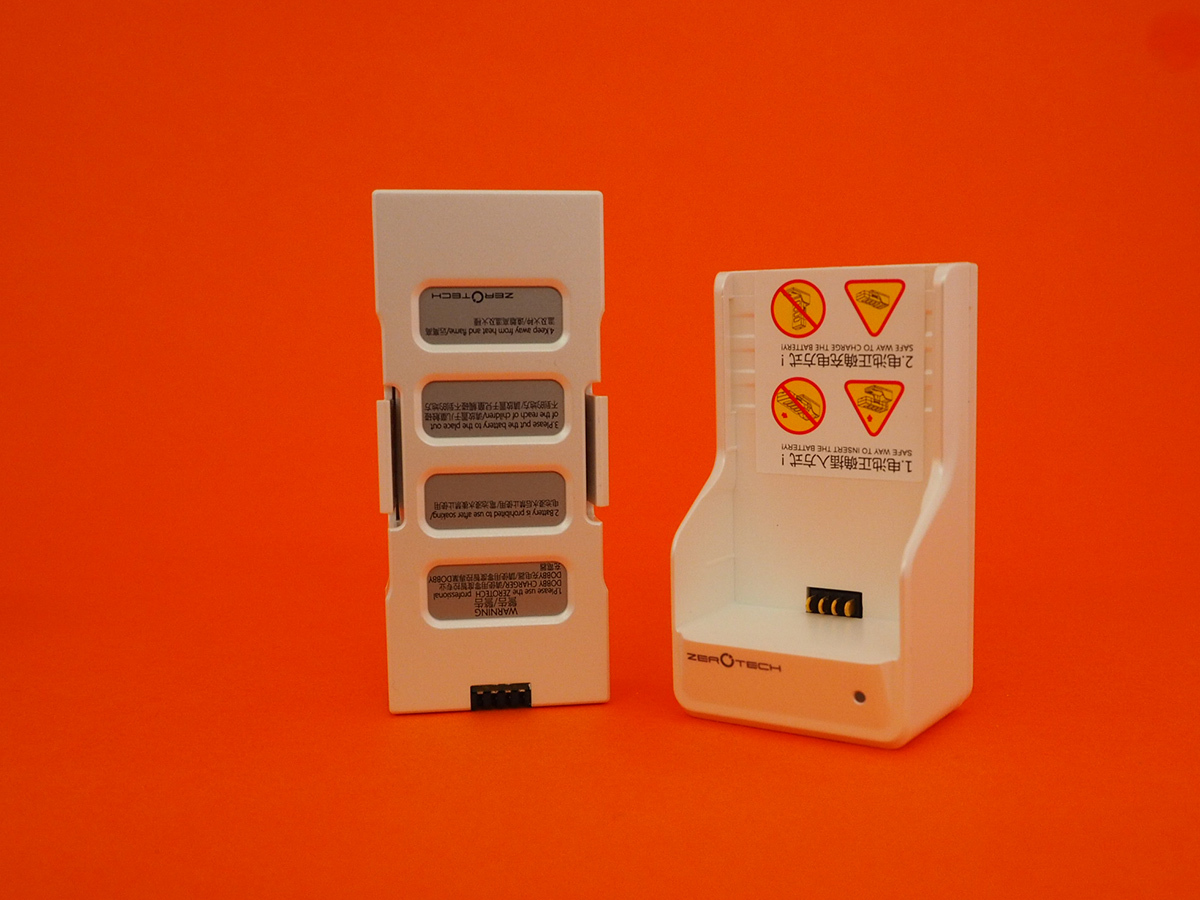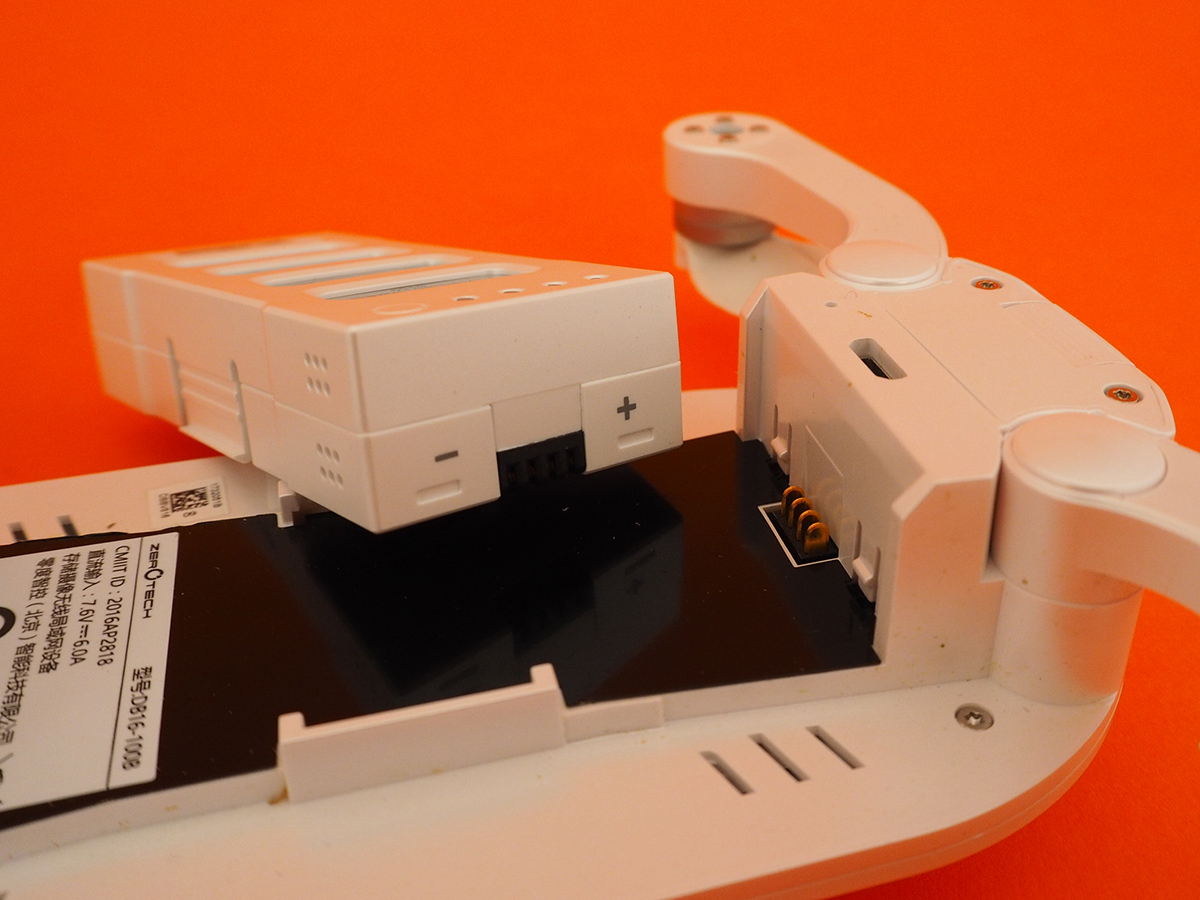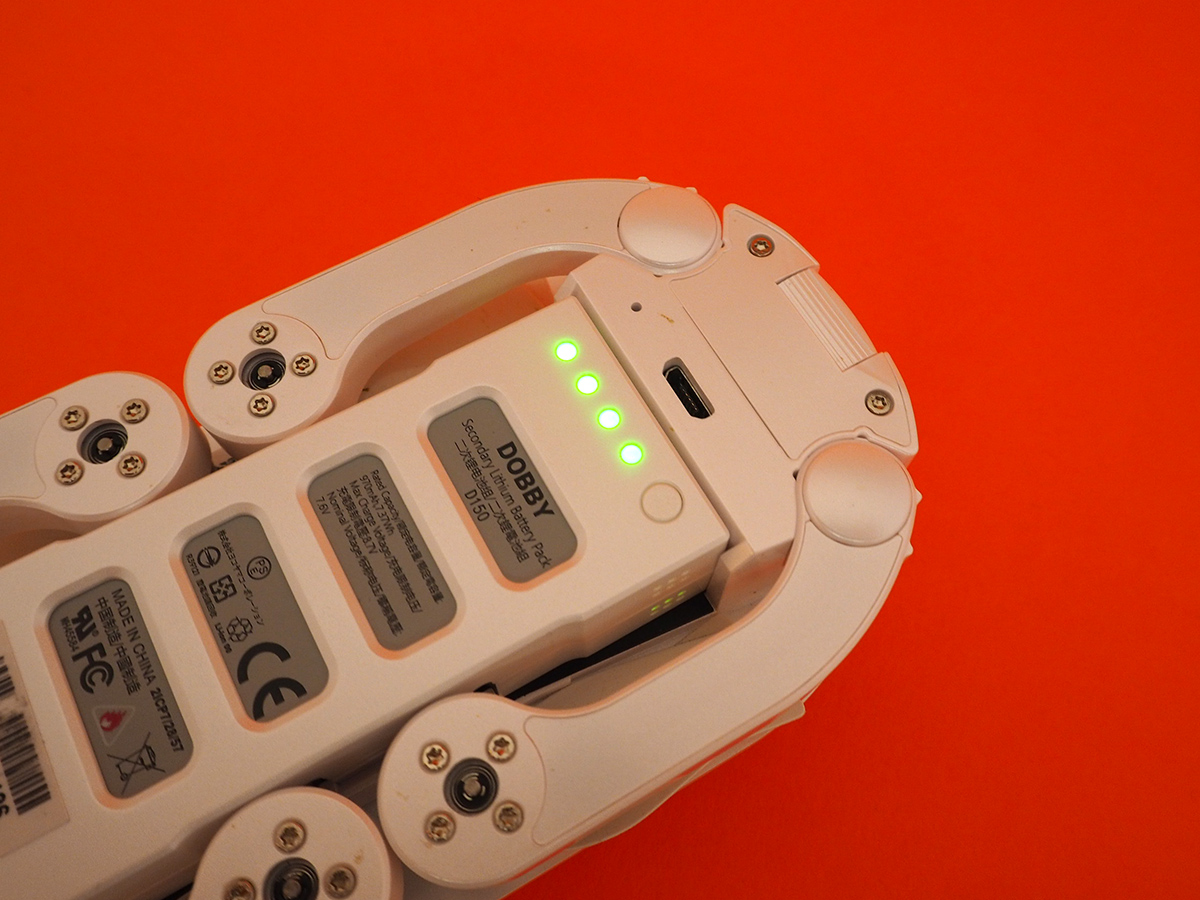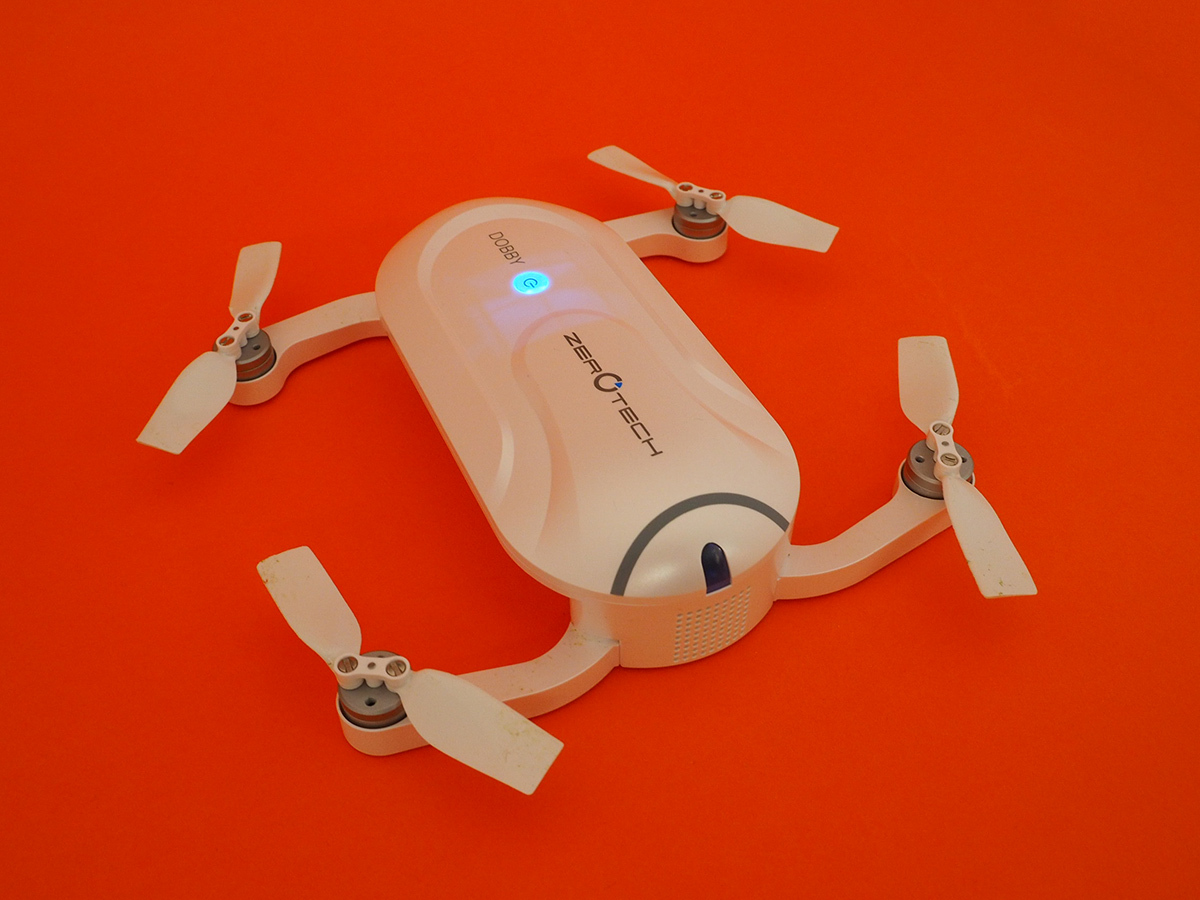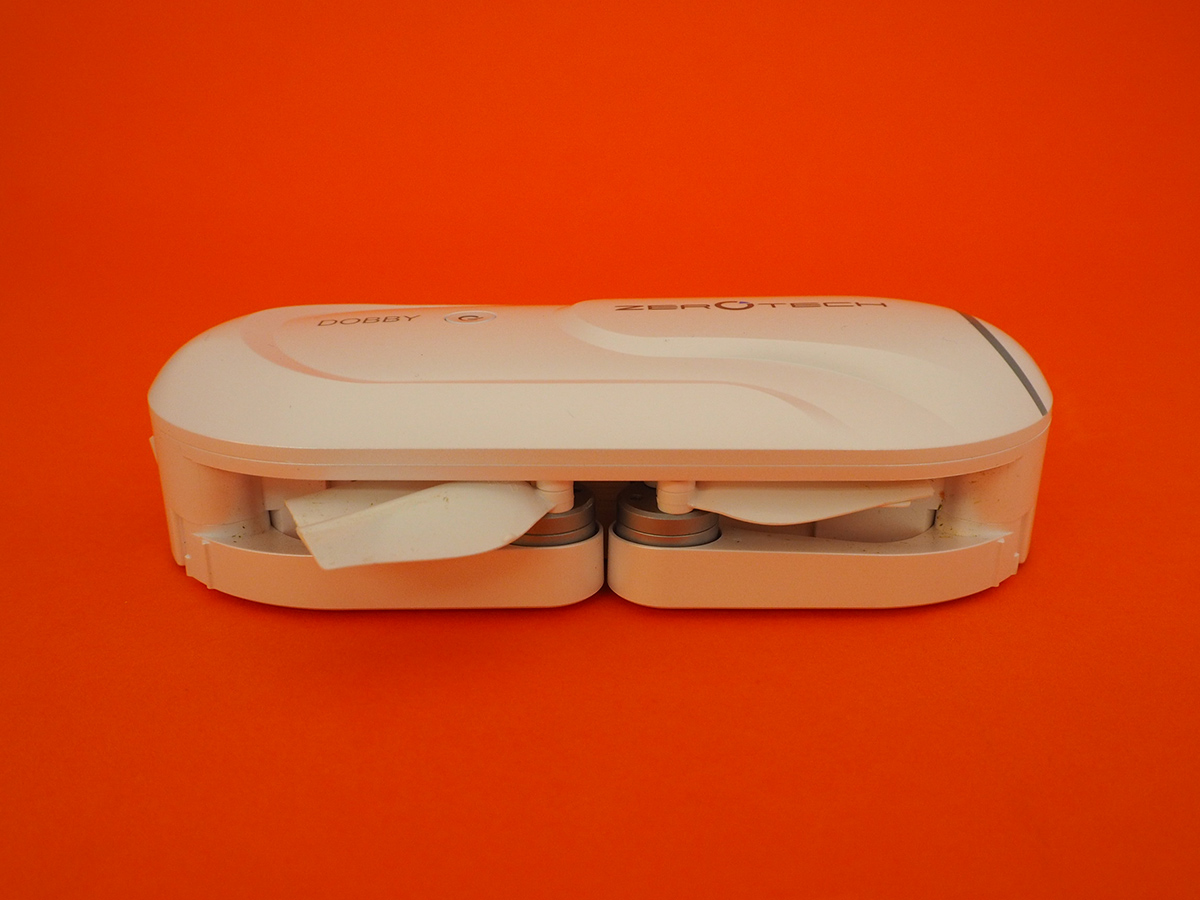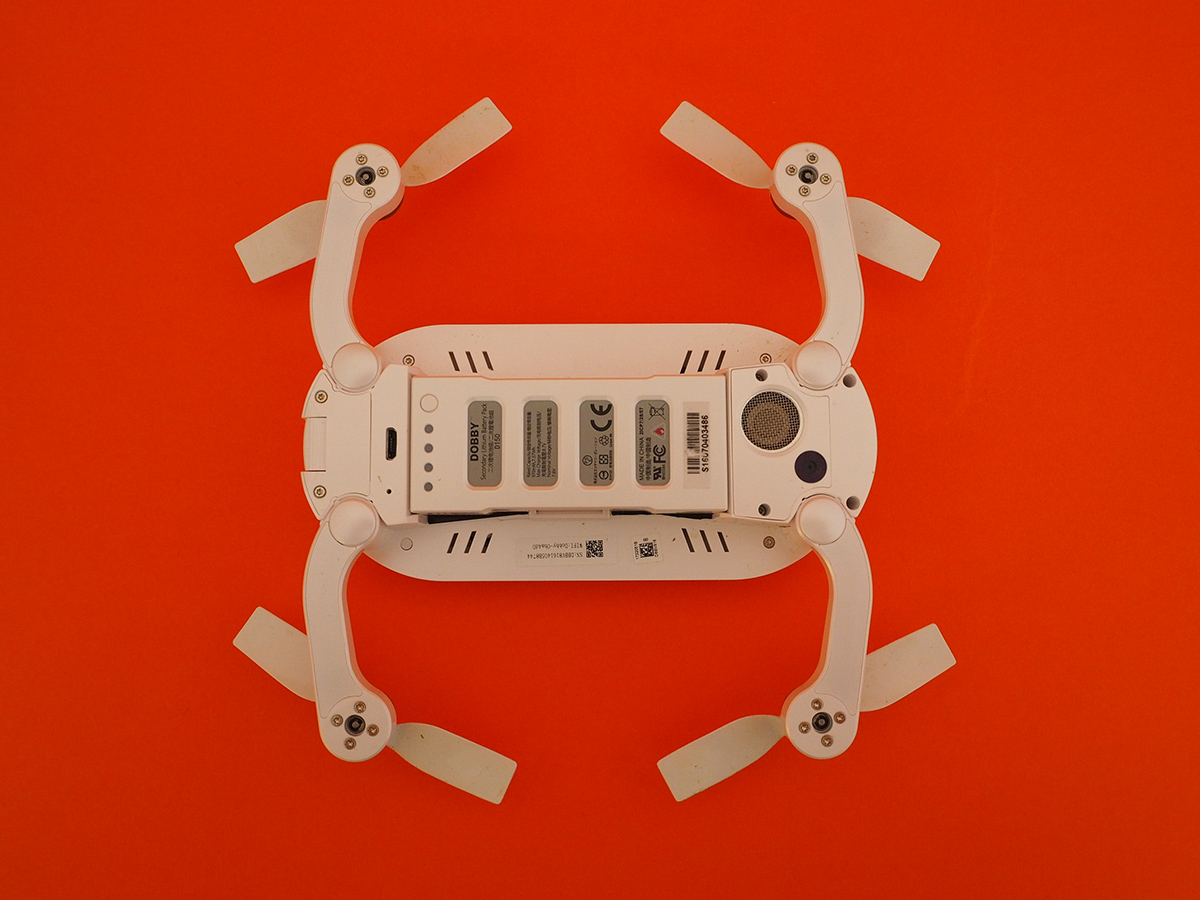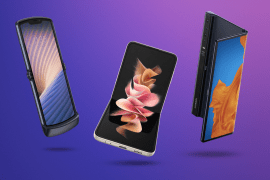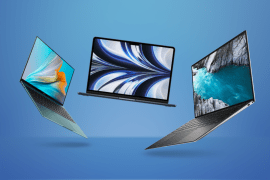Zerotech Dobby review
The diminutive drone that can snap an aerial selfie then slip in your pocket
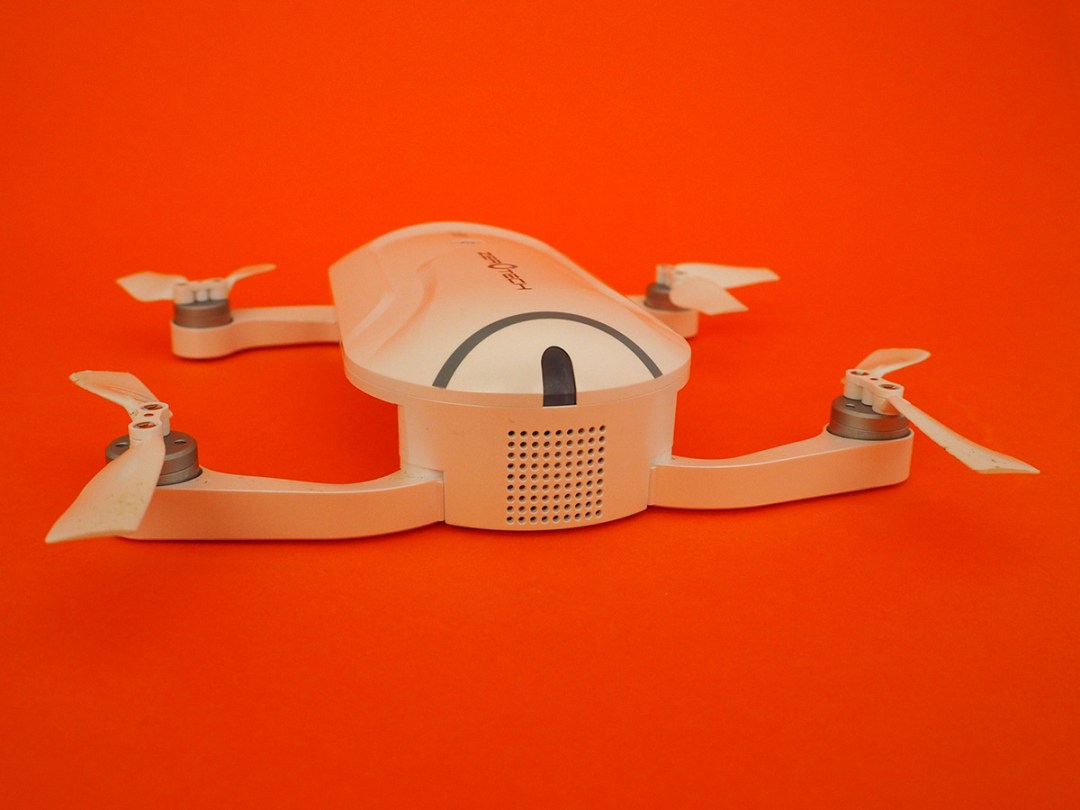
Aerial photography – sounds expensive, right? You’ll probably need to splash out a huge amount of cash on one of those fancy Phantom 4s.
Not necessarily.
If you’re more interested in selfies than stabilised strafing runs and panning shots, there are a whole bunch of alternatives that won’t break the bank.
Zerotech’s Dobby is the smallest I’ve flown. Forget a backpack full of kit – it’s small enough to slip in your pocket, and flies using your smartphone instead of a bulky controller.
Oh, and don’t forget that all-important built-in camera. Sounds like a bargain for £299, surely?
Zerotech Dobby design
Yes, that tiny looking toy in the photos above really is able to fly 30m off the ground. And it’s no bigger than a smartphone!
The Dobby is so small because it’s got brilliant fold-out rotor arms, that tuck inside the main body when you aren’t flying. It takes five seconds to unfurl the arms – because the rotor blades are articulated, they’ll be forced open through centripetal force as soon as you start the motors.
It’s small and light enough that you can actually take off and land from the palm of your hand – no searching for a smooth take-off site, or crushing down grass to avoid tangled propellors.
There’s a power button on the top, and a camera up front, but that’s about it – everything else is done through the smartphone companion app.
That means no remote control to cart around, and no complicated layout to learn. It’s a great way for a drone novice to learn the ropes.
NEED FOR SPEED › How to build a racing drone
Zerotech Dobby in the air
That’s right: you fly this thing with Wi-Fi. There’s nothing wrong with that per se, but it definitely restricts your range.
There’s a hard-wired 30m height restriction, so you’ll struggle to fly far enough above your phone to completely lose connection, but it means you can’t get too extreme with your aerial photos.
Still, if you do somehow manage to disconnect mid-flight, the drone automatically returns to its take-off position and lands.
First though, you’ve actually got to connect the thing. Zerotech’s Do.Fun app (yes, it is really called that) regularly refused to pick up the drone, even when my phone was connected to its Wi-Fi network. You’ve got to reboot and try again, which is very irritating.
Once you’re up and running, though, it’s a one button take-off through the app.
You can fly with traditional twin stick controls if you like, but there are plenty of smart modes that do all the hard work for you. Voice recognition only had about a 60% hit rate, so is best avoided, but the object tracking mode works pretty well. The drone follows you slowly at a set height, panning left and right as you move.
There’s no obstacle detection though, so unless you’re in a completely open space, you’ll want to keep an eye out for anything that might send your drone plummeting to the floor.
When you take over manual control, you’ve got to remember to flip the flight mode to camera forwards – it’s actually mounted on the back of the drone (for selfies, innit) and things can get confusing using the default layout.
Oh, and it might look cute and cuddly, but those rotors still spin at one hell of a pace. They’ll seriously hurt if they make contact with your skin, even if they do shut off very quickly when it makes contact with something.
BOP IT › Parrot Bebop 2 review
Zerotech Dobby camera
A built-in camera is a rarity in any sub-£500 drone, so you’ve got to expect a few shortcomings. On paper, should deliver: a 13MP sensor, 1080p video and a 75° field of view.
The big issue for drone pros is the fixed lens. You can tilt it by hand before you take off, but once you’re up in the air you can’t move it at all. That’s fine if you’re just trying to get a quick aerial selfie shot, but not great for more advanced photos or video.
There’s no zoom or tilt, and the fixed focal length will struggle to make landscape photos pop in the same way as a more expensive drone.
You’ll have to line up your shots by turning the drone, rather than a gimbal like you would on a more expensive drone, but once you’ve gotten used to it you’ll get some surprisingly clear shots from the Dobby’s all-seeing eye.
On bright, sunny days, there’s plenty of detail on show and colours have real pop. It doesn’t keep up this quality at dusk though – that’s when it starts to struggle with exposure and light flares from the setting sun.
Still, this is supposed to be a selfie drone, so all the camera really has to do is beat the front-facing camera on your smartphone.
On that level, it mostly succeeds: give it enough light and your snaps will be clear and with a respectable amount of detail, but once the sun goes down expect to see a lot of noise, poor contrast, and massively underexposed images.
Life’s a breeze › Yuneec Breeze 4K review
zerotech Dobby video
It’s a similar story when it comes to video. Quality is decent enough, as long as it’s a bright day, but your results will take a big hit as it gets closer to night time.
That 75° lens doesn’t leave a lot of room for digital image stabilisation, so when you’re flying at full tilt you’ll actually lose part of the frame to the software cropping. Using the automatic flight modes helps, but limits the kinds of footage you’ll get.
There’s also an unmistakeable visual wobble, introduced by the rapidly spinning rotors, that just can’t be removed with software.
For stationary selfies, though, the Debby is surprisingly sturdy. Those four motors hold it in place very well, even at height and in low winds. It’s still a tiny drone, though, so strong gusts can send it off course.
Speaking from experience, though: it works a lot better with GPS outdoors than it does with IR tracking indoors. I experienced quite a lot of drift when flying inside. Followed by quite an expensive crash.
KARMA COMES BACK AROUND › GoPro Karma review (hands-on)
Zerotech Dobby battery life
Come on, you surely didn’t expect the Dobby to have the stamina for all-day flying? Look at it – it’s tiny!
There’s simply not enough room for batteries in this thing, and that means flight time is a pitiful eight minutes. And that’s in perfect conditions – when you’re fighting against the wind, expect less. You can actually see the battery life plummet by the second in the app.
Clearly you won’t be shooting any epic aerial videos on one of these (at least not in one take, anyway), but for high rise selfies, you can expect five or six photo ops before it’s time to recharge.
Quite honestly, that’s not enough – even with an extra battery included in the box.
Each removable battery is about as big as a cigarette lighter, so you’ll at least be able to stash a few in a pocket for later when you eventually run out of juice.
It plays nicely with QuickCharge 2.0 mains adapters as well, bringing charging time down to roughly 45 minutes. Still, that feels like forever when you’re just desperate to get back up in the air.
If portability is all that matters, you’re going to have to bite the bullet when it comes to battery life. For more flight time, you’ll need a bigger bag – and a more expensive drone, like Yuneec’s Breeze 4K.
GO FOR PRO › DJI Mavic Pro review (Hands on)
Zerotech Dobby verdict
…and it was all going so well.
The Dobby is a teeny tiny drone, one that’s really the perfect size for taking anywhere.
It’s just a shame you’ve also got to lug around spare batteries, if you’re planning on heading out for more than a few minutes at a time.
I can forgive the fairly uninspiring camera quality – after all, this is one of the cheapest 1080p camera drones around. Even the smartphone connection bugs are only mildly irritating.
That’s just not enough for me to overlook a five minute battery life, though. It might be more expensive, and larger, but Yuneec’s Breeze 4K is still the king of aerial selfies.
Stuff Says…
It’s truly pocket-sized, but that comes at the expense of battery life and camera control. The Dobby is fine for aerial selfies, but only if you’ve got some spare battery packs to get you through the day
Good Stuff
Tiny enough to take everywhere
Some advanced modes for such a tiny drone
Reasonable camera quality
Bad Stuff
Wonky Wi-Fi
Abysmal battery life
No good if you want more from the camera than drone selfies
